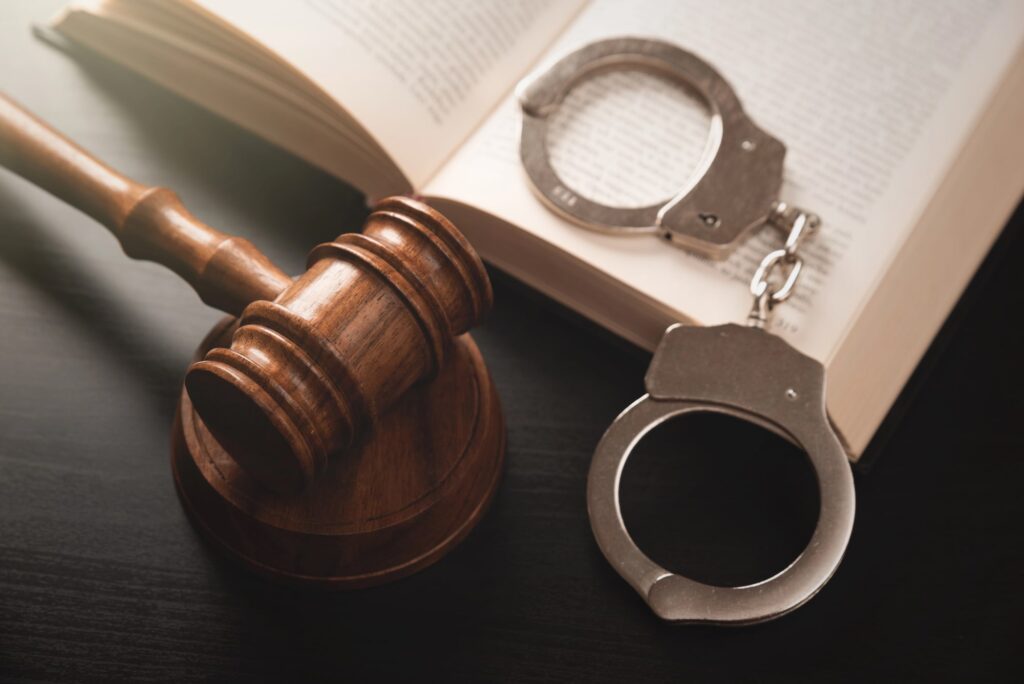Probation hasn’t always been as common as it is today. Traditionally, the criminal justice system was mostly punitive, meaning that the focus was on punishing offenders. One of the earliest known criminal laws includes the concept of “an eye for an eye” – nearly 4000 years ago! These early criminal justice systems were meant to punish offenders and to isolate them from the rest of society by keeping them imprisoned.

Over time, the idea of rehabilitation became more accepted. It isn’t new – probation has been around for centuries, but never as widespread as today. In fact, in 1916, the U.S. Supreme Court determined that federal judges didn’t have the authority to sentence someone to probation. This led to new laws empowering judges to use probation, and by 1959 the idea was being used nationwide.
Today, our system looks much different. Statistically speaking, most cases result in probation. This is particularly true for lower level, nonviolent crimes, or those in which there are obvious underlying causes that can be addressed – addiction, for example. This policy even extends to many felonies. See here for more on that.
Compared to other states Minnesota is more likely to sentence a person to probation and less likely to sentence them to prison. In fact, Minnesota has one of the lowest levels of incarceration in the United States, but ranks very high for number of people on probation. However, just saying that most cases result in probation glosses over a lot of details. This post explores some of the finer details of probationary sentences.
Jail time: Just because someone receives probation does NOT mean that they will not also serve jail time. In fact, a person can be sentenced to up to a year in jail while still receiving probation! Depending on the offense, a judge may order a person to serve some amount of jail time as a condition of their probation. For example, a common gross misdemeanor DWI sentence in Minnesota will have a judge order the defendant to “serve 364 days in jail, with all but 30 days stayed.” What this means is that the person will serve 30 days, with the remaining 334 days hanging over their head. They will be placed on probation, and if they violate their probation, the judge can sentence the person to some or all of the remaining jail time.
Type of stay: Not all probationary sentences are equal. There are several types of stayed sentences, including stays of adjudication, imposition, and execution. Although these terms might sound like meaningless legal nonsense, the difference is very significant.
- Under a stay of adjudication, successful completion of probation will result in a dismissal of the case with no conviction. Learn more about that here.
- With a stay of execution, a person is fully convicted of the underlying offense. Successful completion of probation will minimize the amount of jail time that person serves, but they will still have a conviction on their record.
- A stay of imposition is most commonly used in felony cases and is a middle ground between the other two options. When a person receives a stay of imposition on a felony case, they are convicted of the felony and generally incur all the consequences of a felony conviction. However, if probation is completed successfully, the sentence will be converted to a misdemeanor. They will still be convicted of the offense, but their record will show only a misdemeanor level conviction.
Length of probation: The length of a person’s probation can vary greatly. For most misdemeanors, 1 year is standard. For misdemeanor DWI or domestic violence-related cases, probation can be up to 2 years. On gross misdemeanor cases, 2 years is standard. Gross misdemeanor DWI cases can receive as much as 6 years of probation. Under a new law passed in 2023, most felonies are capped at 5 years of probation. This cap does not apply to violent crimes or sex offenses.
Level of supervision: Probation can also vary in the level of supervision assigned to a case. Some low-level cases can be assigned unsupervised probation, which means no one actively monitors the probationer. Instead, a record check is run at near the end of the probationary period to see if any new offenses occurred. In other cases, probation will be supervised with a probation agent actively keeping in touch with the probationer. In the most serious cases this supervision can be quite intensive, requiring regular face-to-face meetings.
Programming: Probationers may be ordered to do some type of programming, depending on the nature of the underlying case. Commonly required programs are things such as chemical dependency treatment, anger management, sex-offender treatment, safe driving courses, and more.
Other conditions: Courts may also order other conditions of a person’s probation. Some common ones include abstaining from alcohol or drugs, not possessing weapons, having no contact with specific people or locations, paying restitution, or writing a letter of apology. Which conditions are ordered usually depends on the type of underlying offense.
The increased use of probationary sentences has changed the criminal justice system a lot in the last century. Today, instead of locking everybody up, many people get an opportunity to avoid jail. Probation can represent a second chance, an opportunity to make amends, and being provided services to help people better themselves. However, it can also be a major burden on people’s lives, a social stigma, and a significant source of stress and anxiety for those living with the constant fear of being sent to jail if they screw up.
At Archambault Criminal Defense, your future is my priority. If you or a loved one are faced with criminal charges, contact me today to see how I can help protect your future.
Probation Violation Lawyer FAQ
When we’re placed on probation, it’s often an opportunity to avoid jail time while still being held accountable for a criminal offense. However, violating the terms of our probation can have serious consequences, including the possibility of going to jail or facing additional penalties. If we’re accused of a probation violation, having our Minneapolis, MN probation violation lawyer by our side is essential. Below, we answer some of the most common questions about probation violations and how a lawyer can help.
1. What Is A Probation Violation?
A probation violation occurs when we fail to follow the specific conditions set by the court. These conditions vary depending on the offense but can include:
-
Failing to meet with a probation officer
-
Missing court-ordered counseling or treatment programs
-
Failing a drug or alcohol test
-
Not completing community service
-
Committing a new crime while on probation
Any deviation from these conditions can result in a violation, leading to additional legal consequences.
2. What Happens If We Violate Probation?
When a probation officer believes we have violated the terms, they may file a probation violation report with the court. This can trigger a probation violation hearing, where the judge will review the evidence and decide the appropriate action. Possible outcomes include:
-
Warning or modification of probation terms
-
Extension of the probation period
-
Additional conditions (e.g., increased supervision or mandatory treatment)
-
Revocation of probation and imposition of the original jail or prison sentence
A probation violation lawyer can advocate for us and present evidence to challenge the violation or minimize the penalties.
3. How Can A Probation Violation Lawyer Help Us?
A skilled probation violation lawyer plays a critical role in defending us against accusations. Here’s how they help:
-
Evaluate the evidence – They review the probation officer’s report to identify weaknesses or inaccuracies.
-
Present mitigating factors – They highlight any reasons why the violation occurred, such as medical emergencies or misunderstandings.
-
Negotiate with the prosecution – They may negotiate for reduced penalties or alternative consequences.
-
Represent us in court – They advocate for our best interests at the probation violation hearing.
Having legal representation can make a significant difference in the outcome of our case.
4. What Are Our Rights During A Probation Violation Hearing?
Although a probation violation hearing is not the same as a criminal trial, we still have important rights, including:
-
The right to legal representation
-
The right to present evidence and call witnesses
-
The right to challenge the evidence against us
However, at Archambault Criminal Defense, we know that the burden of proof is lower in these hearings. The prosecution only needs to prove a violation by a preponderance of the evidence—meaning it is more likely than not that a violation occurred. This makes having a skilled lawyer crucial.
Probation violations are serious, but they don’t have to result in severe penalties if we act quickly and secure legal representation. Our Minneapolis probation violation lawyer can protect our rights, present a strong defense, and work toward the best possible resolution. If we’re facing accusations of a probation violation, seeking the guidance of an experienced lawyer is the most effective way to defend ourselves and safeguard our future.



